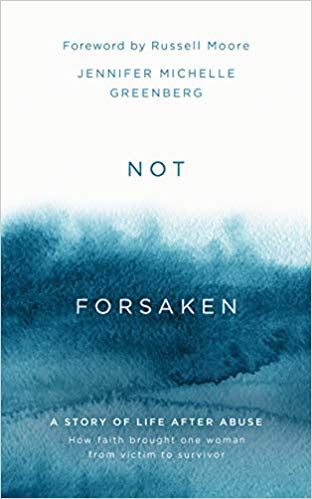How Do I Pray When I'm Angry at God?

One of the most difficult seasons of my life was when I was angry at God. I felt like I was in a state of unforgivable sin. No matter how hard I tried, I couldn’t overcome my pain using logic, prayer, or even Bible study.
You see, I’d just lost my dad. Actually, it took over 20 years to lose him. And it’s not that he physically died. Rather, I confronted him with his chronic sin of abuse, and he refused to repent.
For many years, I begged God to save my dad. I played the obedient daughter, the talented pianist, the dedicated student, the self-sacrificing Christian. Eventually, I ran out of roles to play. I ran out of pleas to pray. Nothing I did touched his heart. None of my words got through to him. None of my prayers were answered.
Instead, like Pharaoh, his heart was hardened. His violence and perversion intensified, and he threatened to shoot me and my entire family if I told. For this, I was angry at God.
I remember praying, “For twenty years I begged you. You could have saved him. You could have changed him. You could have struck him dead before he abused me. But you didn’t. You abandoned me.”
Being Angry at God Is Dangerous in Two Ways:
First, and most obviously, there’s a high risk of sin. In and of itself, anger isn’t a sin (even God feels anger). How we express that anger though, let it affect our lives and our faith, is often sinful.
Second, it builds an emotional wall between us and God, causing terrible feelings of isolation and the sense of being lost or forgotten by our Creator.
As a result, we often fear coming to God in our anger. We’re afraid he’ll be angry at us for being angry at him. What if our anger is a symptom of being unsaved? What if God doesn’t love us after all?
These are terrifying questions, but things we logically wonder as we wrestle with God. So, here’s how to process and pray through the five things I’ve learned about anger at God:
1. God Knows You’re Angry
I still remember that lightbulb moment when I realized, “Wait! God knows everything...so he already knows that I’m mad at him!” It was like taking a gasp of air after drowning in rage. And it’s true!
You cannot keep secrets from God. So, why try? Clear the air and be honest with him. Let God meet you in your anger and despair. He alone enables us to process it.
2. God is Angry at Evil Too
In our modern culture, we tend to fall into one of two errors; either we imagine God as an all-loving, all-forgiving Care Bear, or we fear he’s a disinterested far-away entity floating around in outer space. The God of the Bible is neither of those things. He’s loving yet just.
Psalm 7:11 says God is “angry with the wicked every day.” Jesus says it would be better for a person who “causes one of these little ones to stumble” to have a millstone tied around their neck and be drowned in the depths of the sea, rather than face him on Judgement Day (Matthew 18:6).
We don’t have a Care Bear God, but we don’t have an apathetic God either. We have an involved, protective, passionate, faithful, loving God who is “acquainted with grief.” He defends his children and desires justice. So, it’s OK to be angry at evil, and angry that terrible things happen. God understands, because he’s angry too.
3. God Listens, Even Though We’re Sinful
One of my favorite stories in the Bible is of Jonah. Jonah refused to obey God. He rebelled against God. Fled from God. Was angry at God. Yet despite Jonah’s complicated mess of emotions, God was patient and faithful.
When Jonah ran away, God sought him out. When he lashed out, God reasoned with him. We don’t have to be picture-perfect Christians for God to love us and hear us.
We can be messy, angry, and smell like dead fish. Jonah did! God’s character is not changed by our changeableness.
4. Unpack Your Anger at God
Anger is a complex emotion, and it’s often a reaction to feeling betrayed, abandoned, or disappointed. You may know exactly why you’re angry at God, or you may not. Either way, that’s OK. Remember? God knows everything.
Not only can you tell him that you’re angry, but you can tell him why. And you can even tell him that you can’t put your rage into words. You can ask him to sort through the broken pieces of your heart, and rest assured he understands.
5. It’s OK to Wrestle with God
Another favorite Bible story of mine is when Jacob wrestles with God. Tormented by anxiety and fear, Jacob wandered off alone, and was camping in the desert. During the night, he was approached by a stranger who attacked him. As they struggled in the dust and the darkness, Jacob realized that the stranger was God.
It’s an odd story, yet one I find very relatable. Often, in the isolating darkness of our pain, we feel attacked by God. Maybe he’s made choices we don’t like. Maybe he hasn’t answered our prayers the way we wanted.
Yet God gets down in the dirt and loneliness with us. He doesn’t allow us to ignore him. He doesn’t let us give him the silent treatment. Like Jacob, we wrestle with God. Yet if we cling to him, as Jacob did, and ask him to bless us, God will give us peace.
A Prayer for the Angry Heart:
Any time we’re angry, it can be hard to find words to express our pain. We might not know where to begin. We may fear saying the wrong thing to God. He can be kind of intimidating! Praying the Psalms—stringing together verses that speak to our suffering—can be a healing solution.
Here’s a prayer to help us express anger to God:
Oh Lord, my God, don’t hide your face from me in my distress. Hear me when I call. Answer me quickly (Psalm 102:2). I am feeble and utterly crushed. I groan in the anguish of my heart. (Psalm 38:8) Let me hear joy and gladness again. Let the bones you have crushed rejoice. (Psalm 51:8). Turn your ear to me. Come quickly and rescue me. Be my rock of refuge; a mighty fortress to save me. (Psalm 31:2) Even though I walk through the valley of the shadow of death, let me fear no evil. Let me feel you near me. May your Shepherd’s rod and staff comfort me, guide me, and keep me safe (Psalm 23: 4). For you are my hiding place. Protect me from trouble! Surround me with your songs of deliverance (Psalm 32:7). Amen.

Photo Credit: ©GettyImages
Originally published September 30, 2019.




